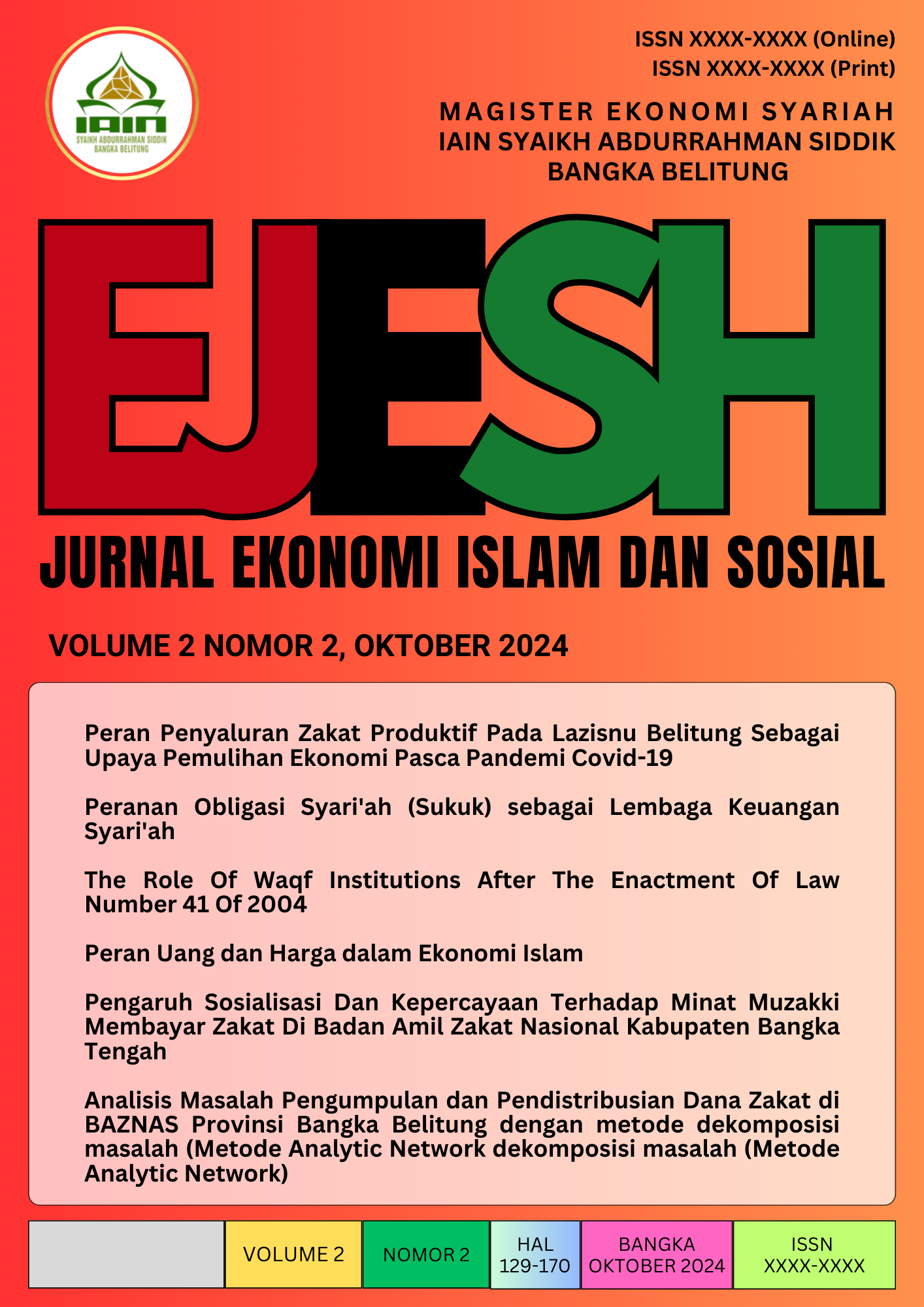Kebijakan Moneter Syariah di Indonesia
Abstract
Each country's monetary policy is different and heavily influenced by the external and internal conditions of the country. Indonesia adheres to a dual banking system: Islamic and conventional banks. So two types of monetary policy are taken, namely conventional monetary policy and Islamic monetary policy. The goal of monetary policy is to accomplish these goals by using suitable monetary tools or instruments to control the supply and demand for money (money circulating in the community), the available money supply, the stability of currency values, and the direction in which money will be distributed. Itself. After the 1997 crisis, Indonesia's monetary policy focused on maintaining monetary stability, especially the rupiah stability. There are four sharia monetary policies implemented in Indonesia, namely: (1) Development of instruments, infrastructure, regulation, and investor base on the sharia money market & sharia forex market, including the utilization of the social sector through Islamic securities. (2) Infrastructure development, real sector-based regulation of liquidity management. (3) Encouraging the development of the Sukuk market. (4) Development of the real sector return index as a benchmark.









.png)


